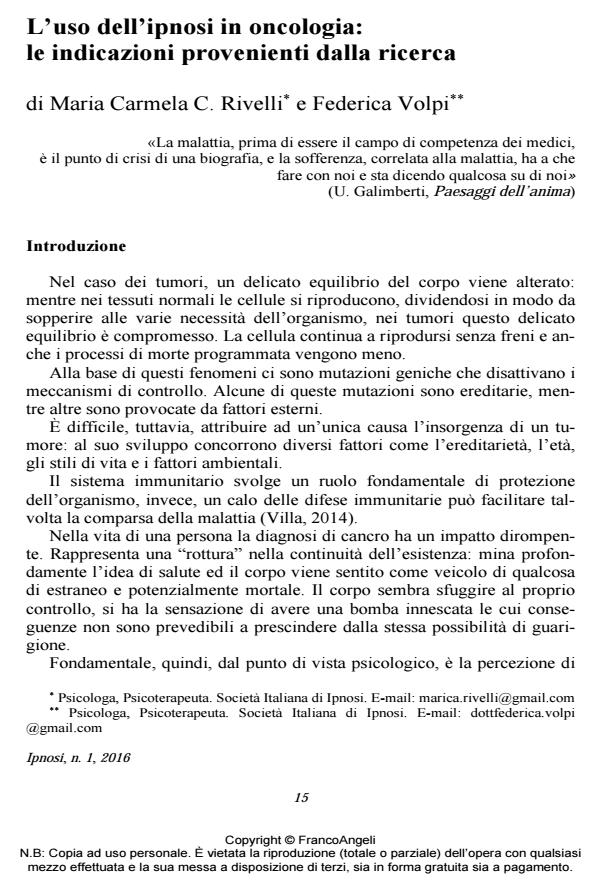L’uso dell’ipnosi in oncologia: le indicazioni provenienti dalla ricerca
Titolo Rivista IPNOSI
Autori/Curatori Maria Carmela C. Rivelli, Federica Volpi
Anno di pubblicazione 2016 Fascicolo 2016/1
Lingua Italiano Numero pagine 10 P. 15-24 Dimensione file 189 KB
DOI 10.3280/IPN2016-001002
Il DOI è il codice a barre della proprietà intellettuale: per saperne di più
clicca qui
Qui sotto puoi vedere in anteprima la prima pagina di questo articolo.
Se questo articolo ti interessa, lo puoi acquistare (e scaricare in formato pdf) seguendo le facili indicazioni per acquistare il download credit. Acquista Download Credits per scaricare questo Articolo in formato PDF

FrancoAngeli è membro della Publishers International Linking Association, Inc (PILA)associazione indipendente e non profit per facilitare (attraverso i servizi tecnologici implementati da CrossRef.org) l’accesso degli studiosi ai contenuti digitali nelle pubblicazioni professionali e scientifiche
The use of hypnosis in oncology: indications from the research. Hypnosis is applied at various levels in cancer care. Several studies show the effectiveness of hypnosis to treat the symptoms of the disease (pain, malaise, irritability and insomnia etc.); in the management of the side effects of cancer treatments; to improve the quality of life and deal with the psychological distress related to the health; for its effects on the immune system. The Authors point out that studies on the effects of hypnosis in activating psyconeuroimmunology mechanisms, which may be useful to modulate disease progression and response to treatment, is a very interesting and promising area of study. In this context, however, research is still lacking, because systematic and controlled trials on the effects of hypnotherapy on the immune system, on the relapse rate and long-term survival of cancer patients are needed.
Parole chiave:Ipnosi, cancro, dolore, sistema immunitario, emesi, coping
Maria Carmela C. Rivelli, Federica Volpi, L’uso dell’ipnosi in oncologia: le indicazioni provenienti dalla ricerca in "IPNOSI" 1/2016, pp 15-24, DOI: 10.3280/IPN2016-001002